If you haven’t yet discovered the powerhouse of nutrients, quinoa (Chenopodium quinoa), you’re in for a treat. Known as a superfood, quinoa is a gluten-free seed cultivated for thousands of years in the Andes region of South America.
It’s quickly become a go-to food for health enthusiasts and nutritionists, and for good reason. This small, versatile seed is packed with protein, fiber, vitamins, and minerals that can benefit your health in numerous ways.
#1. A Complete Protein Source
One of quinoa’s standout features is that it is a complete protein, which means it contains all nine essential amino acids that your body cannot produce on its own.
So, quinoa is an excellent choice for vegetarians and vegans who may struggle to get complete proteins from plant-based sources.
In just 100 grams of cooked quinoa, you’ll find 4 grams of protein, which is quite impressive compared to other grains. This makes quinoa an ideal choice for muscle repair and growth.
Additionally, its high protein content can help you feel full longer, aiding in weight management while also supporting tissue repair and overall health.
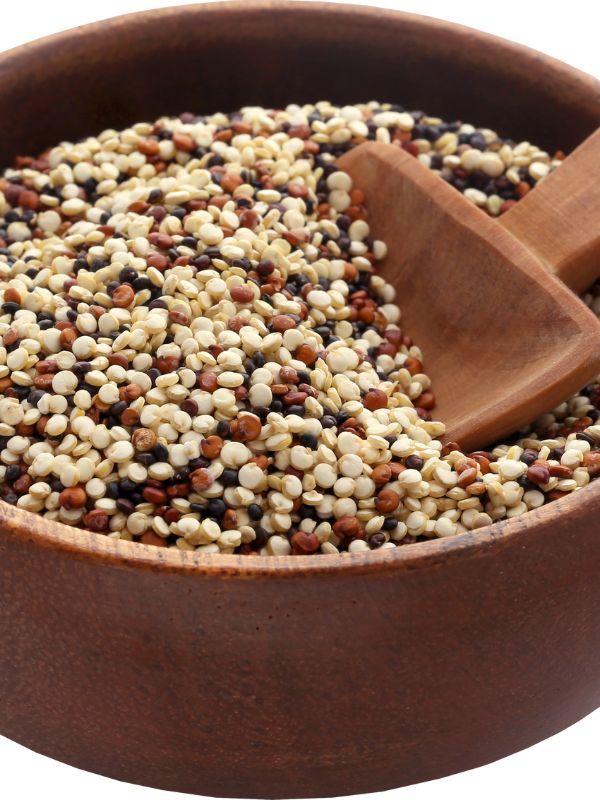
#2. Supports Digestive Health
Quinoa is a great source of fiber, which is crucial for digestive health. It provides 2.8 grams of fiber per 100 grams of cooked quinoa, helping to promote regular bowel movements and prevent constipation.
The fiber in quinoa also supports the growth of healthy bacteria in the gut, which is essential for overall digestive function and immune support.
Since fiber slows down the absorption of sugar into the bloodstream, it helps keep your blood sugar stable, which can be especially beneficial for those managing diabetes.
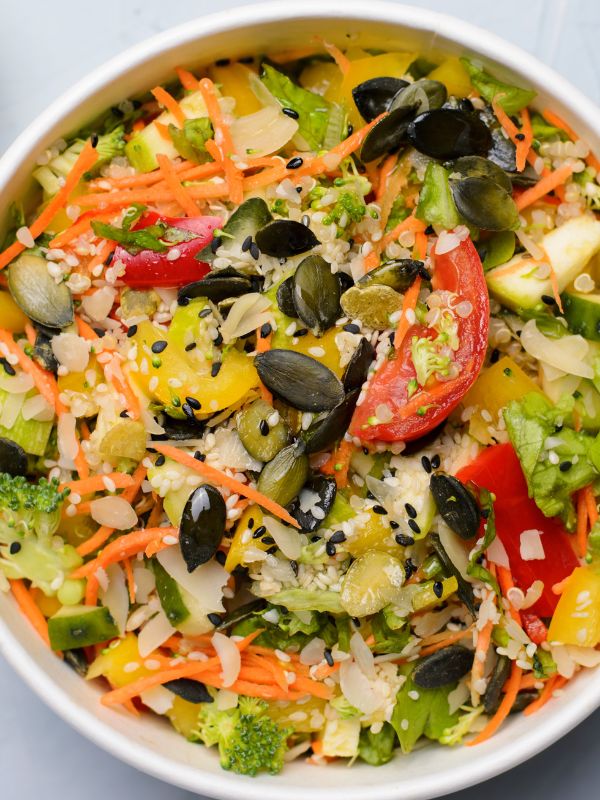
#3. Regulates Blood Sugar Levels
Because quinoa is rich in fiber and has a low glycemic index, it’s an excellent food for helping to regulate blood sugar levels.
100 grams of quinoa contain 21.3 grams of carbohydrates, but the fiber helps slow the digestion and absorption of these carbs, preventing spikes in blood sugar levels after meals.
This makes quinoa a smart choice for people with diabetes or those trying to manage their blood sugar.
Studies, including one published in Nutrients by researchers at the Universitat Oberta de Catalunya, show that including quinoa in a balanced diet can help improve insulin sensitivity and reduce the risk of developing Type 2 diabetes.

#4. Promotes Heart Health
Heart disease is a leading cause of death globally, and quinoa can play a role in reducing the risk. Quinoa is rich in healthy fats, particularly omega-3 fatty acids, which help lower cholesterol levels and reduce inflammation.
In fact, quinoa contains 3.3 grams of fat per 100 grams, with a significant portion being polyunsaturated fats that contribute to heart health.
The fiber in quinoa also helps lower LDL cholesterol, which can build up in arteries and contribute to heart disease.
A study published in the Journal of Clinical Nutrition found that including whole grains like quinoa can help improve cholesterol profiles and support overall cardiovascular health.

#5. Aids in Weight Management
Its combination of high protein and fiber content makes it incredibly filling, which can prevent overeating and help with portion control.
The fiber in quinoa promotes satiety, meaning you’ll feel full longer, while the protein helps stabilize your blood sugar levels, reducing cravings throughout the day.
With 100 grams of quinoa containing 120 calories, it provides a satisfying and nutritious base for meals without adding excessive calories.
Therefore, if you’re looking to maintain a healthy weight, quinoa can help you feel more satisfied and avoid unnecessary snacking.

#6. Rich in Antioxidants
Quinoa is loaded with antioxidants, which protect your cells from oxidative stress and damage caused by free radicals. It contains flavonoids, including quercetin and kaempferol, known for their anti-inflammatory and antioxidant properties.
In fact, quinoa’s antioxidant content is even higher than many other grains, making it a great addition to an anti-inflammatory diet.
The antioxidants in quinoa are shown to help reduce the risk of chronic diseases like cancer and heart disease by neutralizing free radicals and reducing inflammation.

#7. Naturally Gluten-Free
If you have a gluten intolerance or celiac disease, quinoa is an excellent alternative to traditional grains. It is naturally gluten-free, making it a safe and healthy option for those who need to avoid gluten in their diet.
Quinoa’s versatility also means using it in various dishes, from salads and bowls to baked goods and side dishes, without worrying about gluten contamination. It provides a nutritious, gluten-free source of protein, fiber, and essential nutrients.
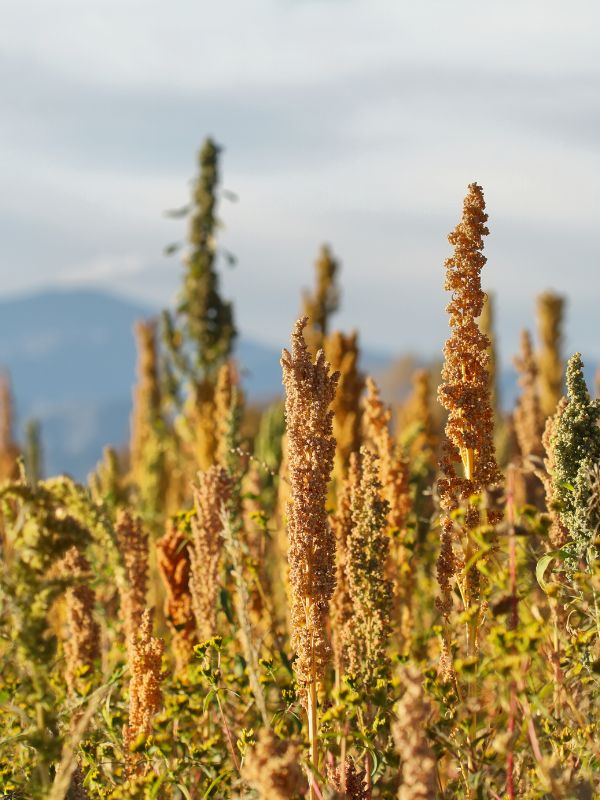
How to Incorporate Quinoa Into Your Diet
- Quinoa salad: Combine cooked quinoa with your favorite veggies, such as cucumbers, tomatoes, and avocado. Add some olive oil and lemon juice for flavor, and enjoy a refreshing, nutrient-dense salad.
- Quinoa breakfast porridge: Cook quinoa with almond milk, then add fruit, nuts, and a drizzle of honey or maple syrup for a satisfying, gluten-free breakfast.
- Quinoa stir-fry: Use quinoa as a base for a veggie stir-fry. Toss cooked quinoa with sautéed vegetables like broccoli, bell peppers, and carrots, and top with a soy or peanut sauce for a quick and nutritious meal.
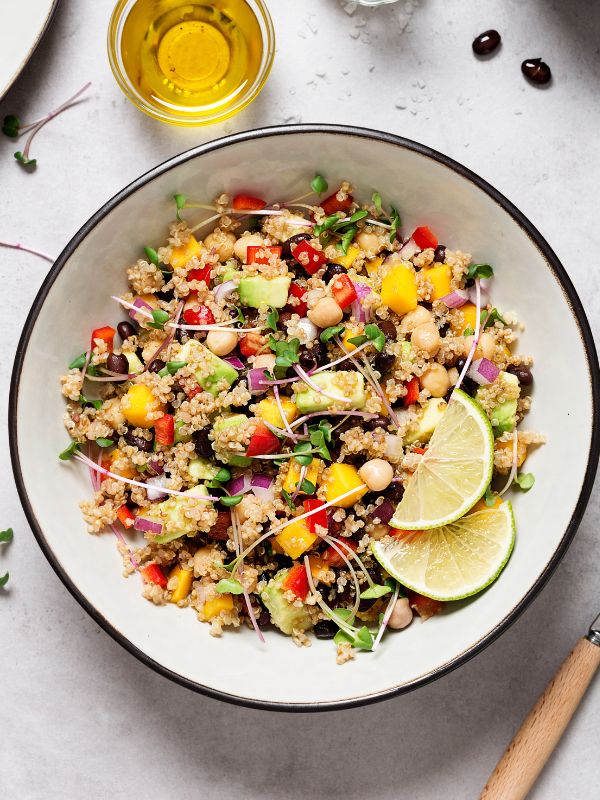
Cautions and Precautions
Quinoa contains phytic acid, which can bind to minerals like iron and zinc and reduce their absorption. To minimize this, rinse quinoa thoroughly before cooking or consider soaking it overnight.
While quinoa is nutrient-rich, it is also calorie-dense. Be mindful of portion sizes if you monitor your calorie intake, especially if trying to lose or maintain weight.
Though rare, some individuals may be allergic to quinoa. Symptoms might include digestive upset, rashes, or more severe reactions. If you are unsure, it’s best to consult with a healthcare provider.
Disclaimer
This article is for informational purposes only and should not be considered a substitute for professional medical advice.
Always consult a healthcare provider before making significant dietary changes, especially if you have specific health conditions or take medications.
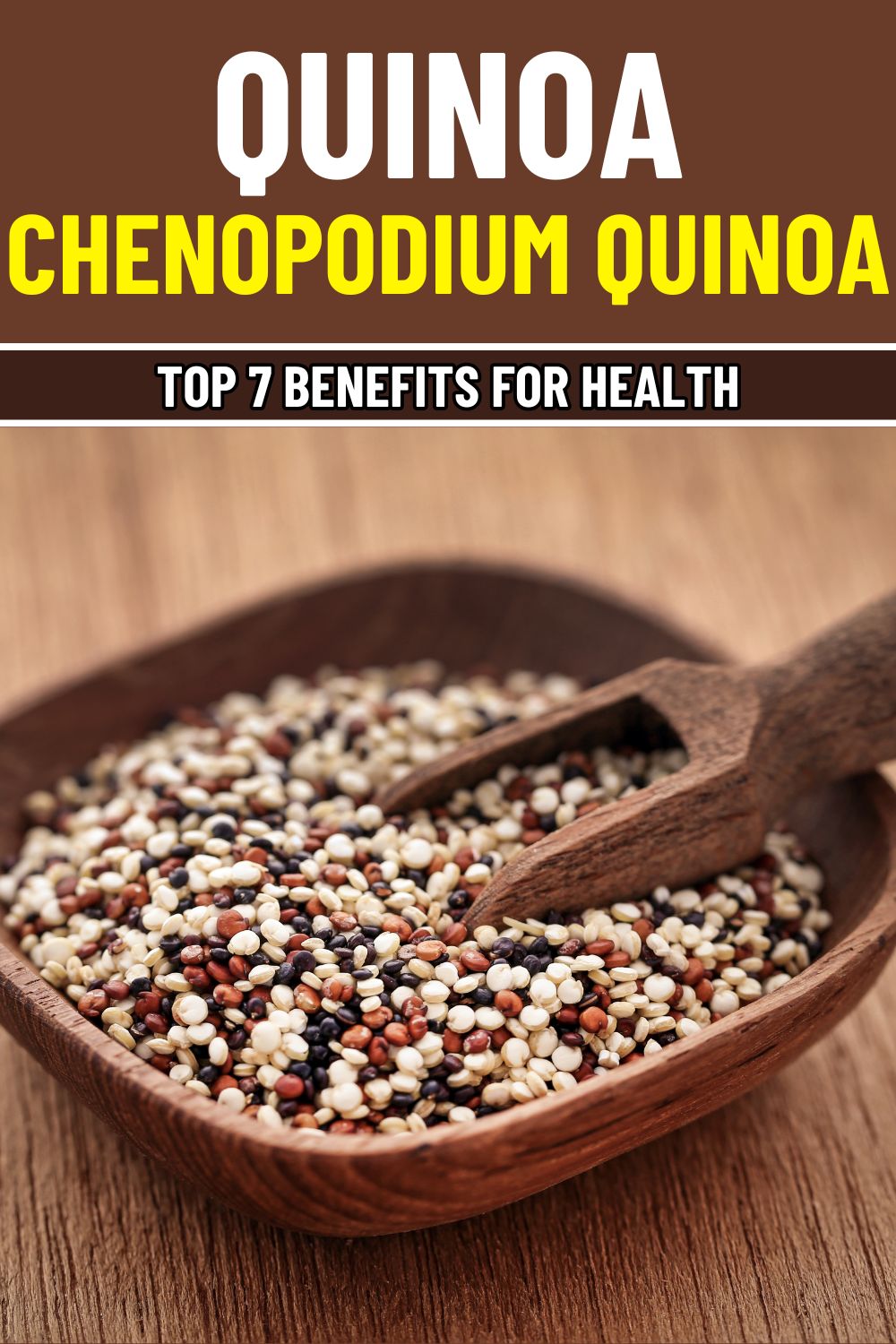
7 Reasons Why Quinoa Should Be a Staple in Your Diet
